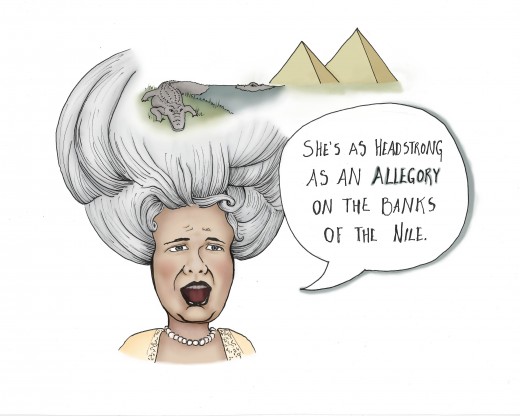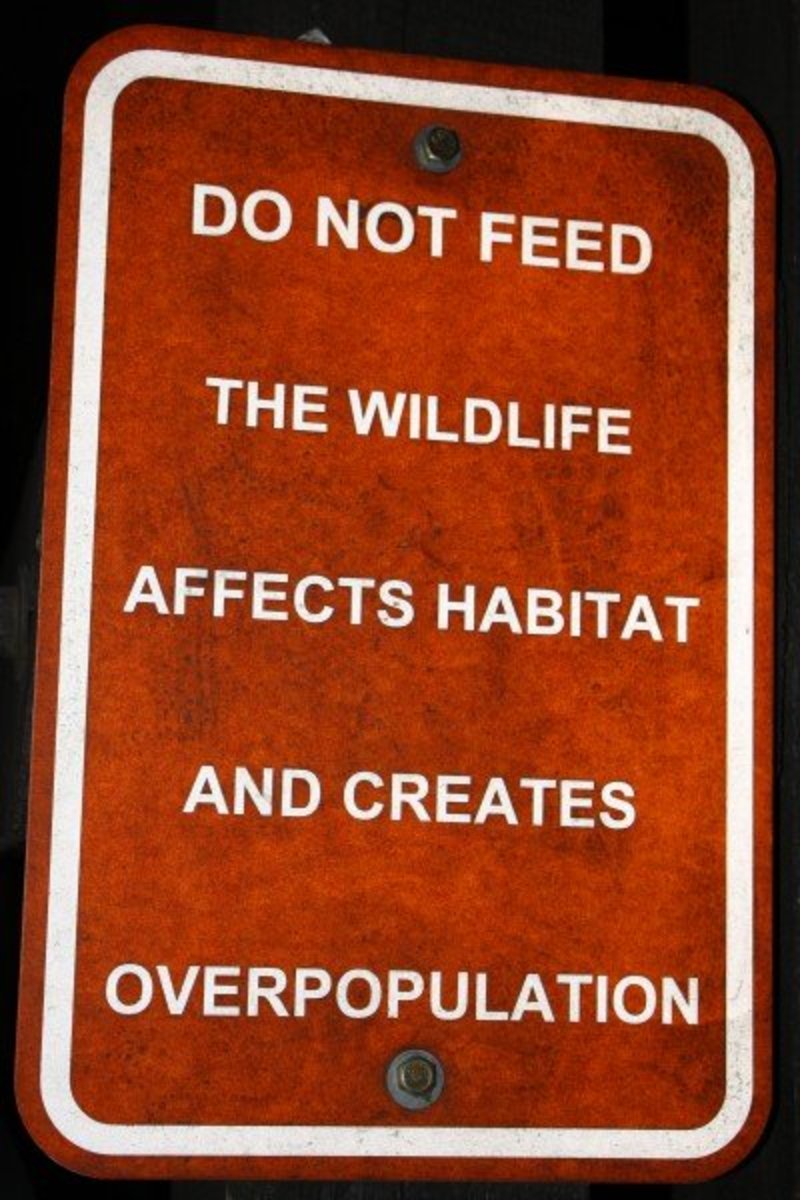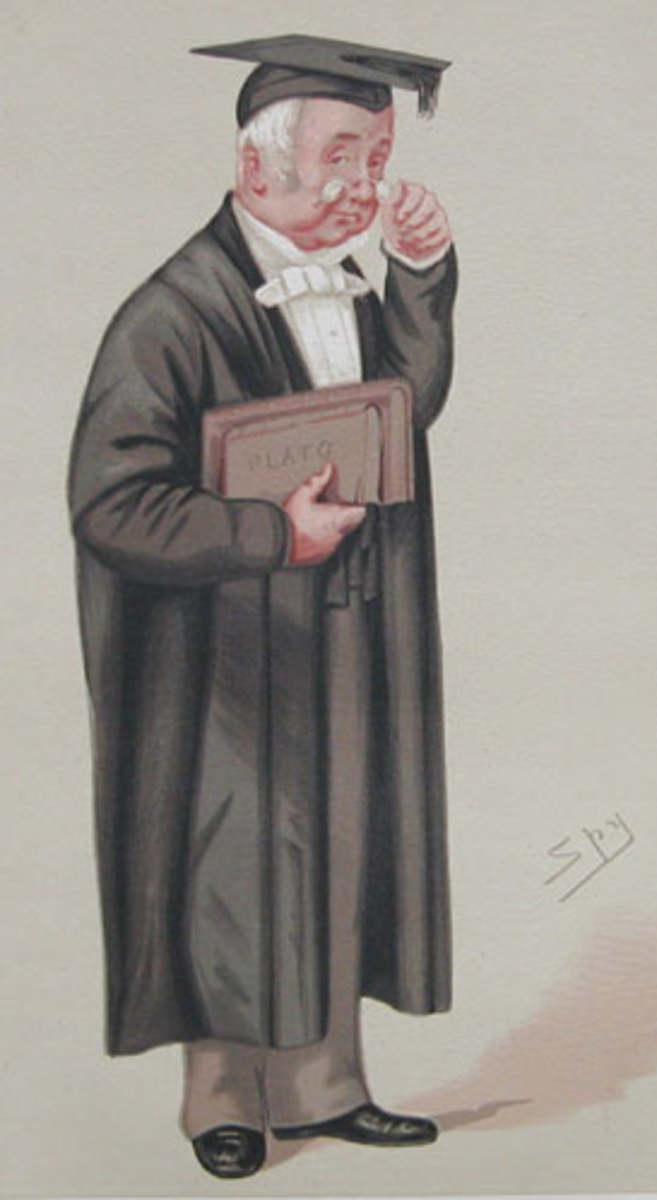A Guide to Commonly Misused Words: Malapropisms

I think it’s time for a hub about misused words. Just yesterday I came across a document of technical writing that strove to showcase a writer’s skills, yet she mistakenly used “insure” for “ensure” in the first sentence. Then it struck me—people probably hire copy editors and technical writers because they cannot detect nuances of words themselves, even ones as blatant as “insure,” and undoubtedly accepted her document without being the wiser. Enough! Let’s show the world that we are literate. Despite the prevalence of misused words, vocabulary confusion is easily ameliorated with simple instruction.
A malapropism (also called a malaprop) is an incorrect use of a word in place of one with a similar sound. Modern usage of the term derived from Richard Brinsley Sheridan’s play The Rivals, in which Mrs. Malaprop personified the habitual misuse of words. Perhaps the most clever is: "Sure, if I reprehend any thing in this world it is the use of my oracular tongue, and a nice derangement of epitaphs!" Of course, used non-strategically by your country’s leader, a malapropism can bring the millions of literate Americans to their knees in agonizing embarrassment. In the U.S., malapropisms have sometimes been termed “Bushisms” thanks to errors like the following: "Anyone engaging in illegal financial transactions will be caught and persecuted." (Washington, D.C., Sept. 19, 2008)
Malapropisms
Adapt; adopt
Adapt: to modify something for a new purpose
The old vehicle was adapted to meet its new owner’s needs.
Adopt: to accept and use something
The company adopted a novel business model.
Allude; elude
Allude: to indirectly refer to something
The speaker alluded to someone in the audience.
Elude: to escape from; (of an idea or fact) to fail to be remembered by someone
He eluded his pursuers.
The memory of our first encounter eludes me.
Allusion; illusion
Allusion: a covert or indirect reference, not an explicit mention
The biblical allusion was lost on the book’s readers.
Illusion: a deceptive appearance that belies something’s actual existence
The family’s illusion of normalcy concealed its private turmoil.
Amoral; immoral
Amoral: not moral, outside the sphere of morality
A spider’s view of consuming other creatures is amoral, for as a carnivore in need of sustenance, the social concepts of “right” and “wrong” are irrelevant.
Immoral: failing to adhere to standards of morality
Though previously deemed morally acceptable, slavery is now widely considered to be a grossly immoral practice.
Compliment[ary]; complement[ary]
Compliment: (1) vb., to praise; or (2) n., a laudatory remark
Complement: (1) vb., to supplement appropriately or adequately; or (2) n., an adequate supplement
Compliment has been known to displace complement in the phrase full complement:
“The Contract Appeals Board has never had a full compliment (read complement) of five administrative judges.” (Garner 174)
Complementary frequently displaces complimentary, as in the incorrect phrase, “Guests will be given complementary (read complimentary) access to the fitness center.”
Die; dice
A singular numbered cube (used in games of chance) is called a die. The plural form is dice. If it helps, liken the grammatical form of dice to another common plural: mice.
Disinterested; uninterested
Disinterested: impartial; having no personal interest in something
Uninterested: not interested in something
A judge must be disinterested in a case but not uninterested.
Effect; affect
Effect: (1) n., a change that is the result of an action; or (2) vb., to bring about
Wealthy donors hoped that their monetary donations would have a long-lasting effect on the non-profit organization.
Affect: (1) vb., to influence; or (2) n., the experience of emotion in reaction to stimuli (psychology)
The book described how the opinions of one’s peers affect one’s decisions.
An especially common error is affect’s displacement of effect in the phrase effect change: “Environmentalists worked with corporations to affect (read effect) change.”
Farther; further
Farther refers to physical distance whereas further refers to figurative distance.
Coffee drinkers seldom need to walk farther than two blocks to reach a Starbucks.
Congress’s recent political gesture goes further to appease angry environmentalists than any others in recent years.
Insure; ensure
Insure: to arrange for compensation in the case of an adverse event, such as property damage or personal injury, in exchange for regular payments
The owner insured himself against theft or damage of his new vehicle.
Ensure: to make certain that something will occur
He took precautions to ensure the safe and timely arrival of his cargo.
By taking lengthy precautions he strove to ensure against any mishaps with his property.
Nauseous; nauseated
Nauseous: inducing nausea
They were so nauseous as to slurp raw oysters in front of us.
Nauseated: experiencing nausea
Her illness made her feel nauseated.
Do not claim to feel nauseous unless you believe you arouse feelings of sickness or revulsion in others.
Prosecute; persecute
Prosecute: to institute legal proceedings against someone or something
He was prosecuted by the state’s attorney’s office for his crimes.
Persecute: to subject someone to ill-treatment because of his/her race or beliefs
Considered intellectually inferior, racial minorities in this country have been persecuted for centuries.
Tortuous; torturous
Tortuous: full of twists and turns
They followed a tortuous road through the mountains.
Torturous: characterized by excruciating pain
The war hero endured several torturous months in a prison camp.






